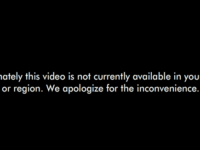Coming off a week in which the government engineered a major cabinet overhaul that saw Heritage Minister Pablo Rodriguez replaced by Pascale St-Onge, an escalation of the battle over digital services taxes, and which featured significant news on both the Bill C-11 and Bill C-18 fronts, this week’s Law Bytes podcast provides a mid-summer update on recent developments. Barring some urgent news, the podcast will be taking a break in August and return in September.

Fair Dealing by Giulia Forsythe (CC BY-NC-SA 2.0) https://flic.kr/p/dRkXwP
Copyright
Culture Lobby Groups Call on Government to Open Door to CRTC Regulation of Video Games, User Content and Algorithms Under Bill C-11 Implementation
Bill C-11 may have receded into the background of CRTC consultations and government policy directions, but Canadians concerned with user content, video game and algorithmic regulation would do well to pay attention. Lobby groups that fought for the inclusion of user content regulation in the bill have now turned their attention to the regulatory process and are seeking to undo government assurances that each of those issues – user content, algorithms and even video games – would fall outside of the scope of the regulatory implementation of the bill. In fact, if the groups get their way, Canadians would face unprecedented regulations with the CRTC empowered to create a host of new obligations that could even include requirements for Youtubers and TikTokers to register with the Commission. With a new Heritage Minister in place, the submissions raise serious concerns about whether the government will maintain its commitments regarding scoping out users, video games, and algorithms.
The most troubling publicly available document comes from a coalition that calls itself ACCORD, representing songwriters, composers, and music publishers. The group has posted its submission to the government’s consultation on the draft policy direction to the CRTC on Bill C-11. All submissions are not yet posted, but I should note that I also submitted a brief document, calling on the government to fully honour its commitment to exclude user content and algorithms from regulation and to establish limits on discoverability regulation.
The Law Bytes Podcast, Episode 171: What Just Happened? – A Half-Year Report on Canadian Digital Policy
With Parliament set to break this week for the summer, this week’s Law Bytes podcast provides a half-year report on what happened over the past six months. At the start of the year, I focused on five issues in 2023 preview: the role of Canadian Heritage, the increasing tensions over digital policy, the emergence of private members bills, wireless policy disputes, as well as privacy and AI regulation. The episode revisits these issues with an examination of how Bills C-11 and C-18 were pushed through the legislative process, the battles over wireless regulation in light of the Rogers-Shaw merger, and the failure to advance privacy and AI regulation.
The Bill C-11 Fallout Continues: Disney+ Pauses Original Commissions in Canada
The fallout from Bill C-11 has been the subject of several posts this week, including the demands from a wide range of services for exceptions to the law and warnings from streaming services such as PBS and AMC that they may block the Canadian market due to the regulatory burden imposed by the law. While those stories focus on the availability of services and content in Canada, a new Variety report points to another negative impact from the bill: less film and television production in Canada, at least in the short term. Throughout the Bill C-11 debate, there were concerns that the large streamers might pause their productions in Canada given the uncertainty over whether they would “count” for the purposes of new CRTC imposed contribution requirements. In other words, the bill could initially lead to less investment in Canada.











